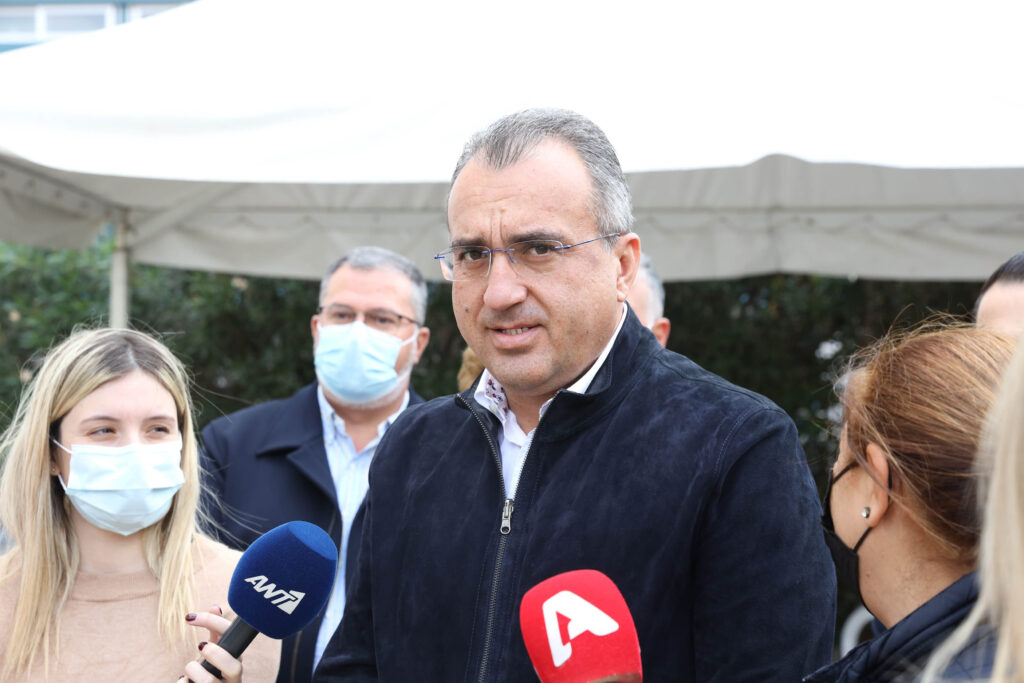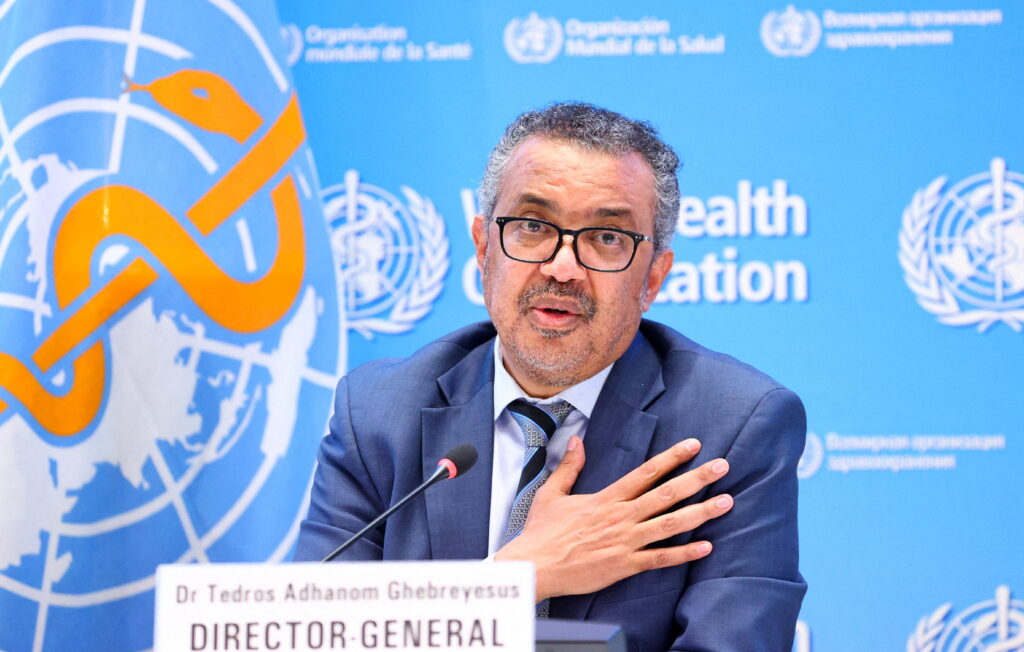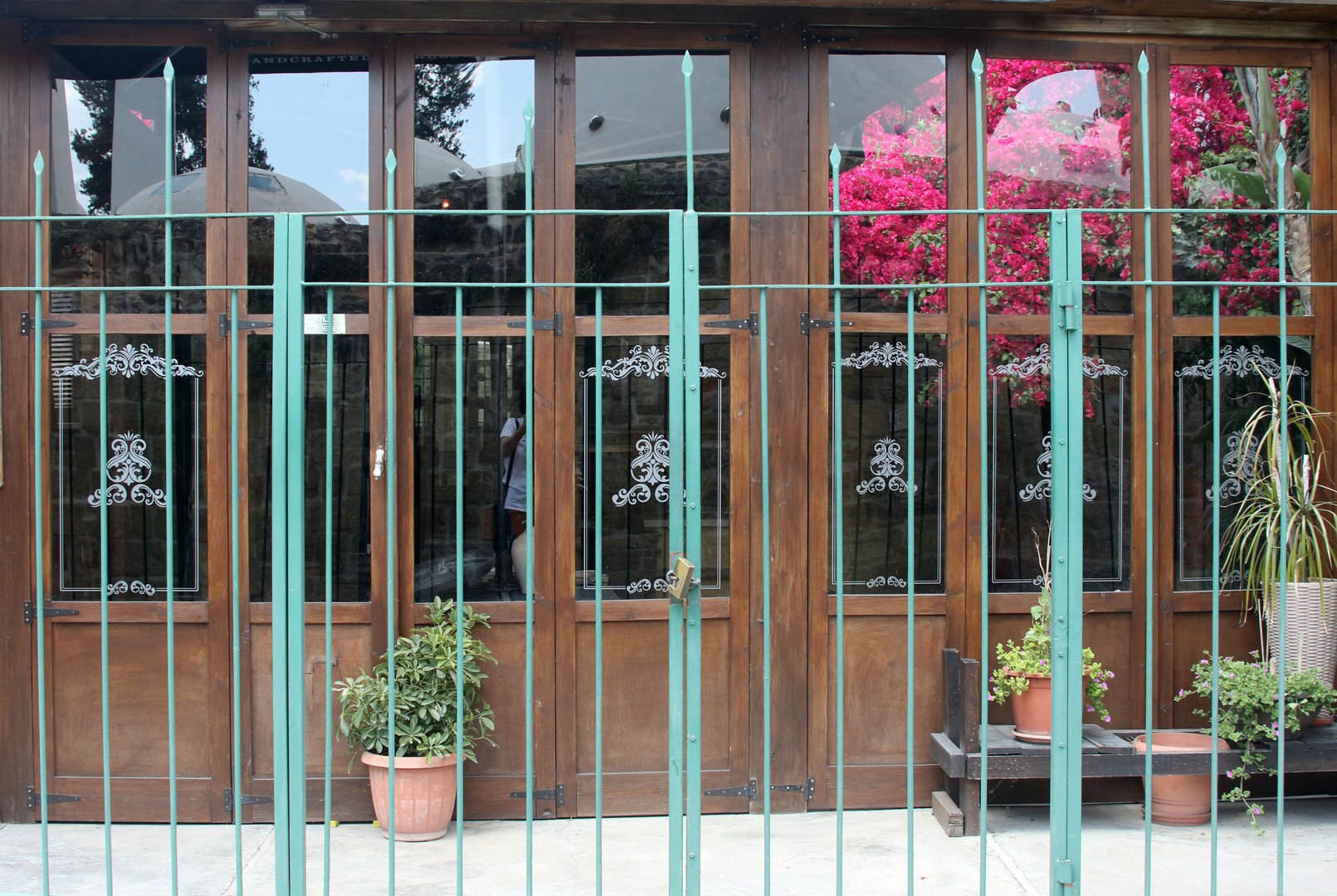Is it right to have national health policy being dictated, top-down, by a global entity asks Theo Panayides
The annual summit of the World Health Assembly – the decision-making body of the World Health Organisation (WHO) – wrapped up on May 28 with the usual hopes for “a healthier world, a safer world, a fairer world,” in the words of WHO director-general Dr Tedros.
A few days earlier, our Health Minister Michalis Hadjipantela made a three-minute speech to the Assembly, which included the following snippet: “Cyprus shares the view that we need to re-evaluate the methodology on international responsiveness to health emergencies.
“In this context, Cyprus welcomes the outcome of the special session [of the Assembly] held in November 2021, which paved the way towards a new international instrument.
“We strongly support a binding agreement on managing pandemics and mitigating their impact… The aftermath of the current Covid-19 pandemic showcased that, when dealing with communicable diseases, we are not safe until everyone is safe.”
Hadjipantela didn’t come up with these talking points by himself. A process to launch a global ‘pandemic accord’ has been underway for months, due to culminate – as mentioned by our health minister – in a binding agreement.

Health Minister Michalis Hadjipantela
The idea is to present a report to the Health Assembly in 2023 with the aim of adopting a treaty, or other instrument, by 2024. It might seem a long way off – but a draft text is expected in a few weeks (by August 1) and, with governments around the world signalling their support, the process is likely to be smooth, especially if another pandemic appears.
“The justification for a pandemic treaty is that, while the technical expertise on how to govern and end a pandemic exists, the political will to do so is missing,” says a recent article on the LSE blog (https://blogs.lse.ac.uk/), written by five authors including LSE professor Clare Wenham and three scientists from the German Alliance on Climate Change and Health.
This is the main case for a global accord – the idea that science (represented by the WHO) could’ve dealt effectively with Covid, but was prevented from doing so by national governments going their own way or failing to follow its recommendations. But how strong is that case really?
The question is, firstly, did the WHO perform well enough during the Covid pandemic to justify giving it increased power over future pandemics? And secondly, even if it did, is it right to have national health policy being dictated, top-down, by a global entity?
On the first question, the Organisation’s record seems mixed at best. Some accuse it of having declared a pandemic too late (on March 11, 2020) and opposing international travel restrictions that might’ve nipped Covid in the bud.
Others point to its flip-flop on masks, and indeed the WHO was still advising people not to wear face masks “unless they are sick with Covid-19 or caring for someone who is sick” until the guidance was changed in early June 2020.
It also flip-flopped on whether Covid is spread by aerosols, as opposed to droplets, insisting that it wasn’t – “FACT: #COVID19 is NOT airborne” it tweeted in March 2020 – before eventually admitting that it was. (The flip-flops are also contradictory, in that masks are much less useful if Covid is in fact aerosolised; but let’s not go there.)
The WHO has also been weak – to put it kindly – on the most important question of the pandemic, namely the origins of Covid, conducting what Matt Ridley in The Telegraph recently called “a farcical Potemkin investigation into the origin of the virus”.
Then there were odd moments like Dr Tedros declaring in August 2020 that there might never be a ‘silver bullet’ for Covid, just weeks before Pfizer announced a 90 per cent effective vaccine. You’d think the head of the world’s flagship health body would be more clued-in on the latest developments.
The real point, however, is not that the WHO was often wrong during Covid. It’s easy to be wrong when faced with a novel virus. The real issue is that the WHO – disproportionately funded, lest we forget, by a few big countries and private donors – was incurious. It didn’t use its global reach to examine evidence in depth, question assumptions or decide between competing policies, going instead for a blunt monolithic approach.

The Wold Health Organsiation’s Tedros Adhanom Ghebreyesus
Take early treatment, for instance. Right from the start of the pandemic, doctors all over the world were reporting that they’d used repurposed drugs against Covid with good results. The first was perhaps Dr Jean-Jacques Rajter in Florida, who reported using ivermectin as early as April 2020; others included Pierre Kory in the US, Jackie Stone in Zimbabwe, Shankara Chetty in South Africa. Brian Tyson and George Fareed in California actually wrote a Covid book subtitled How Two Doctors Successfully Treated 7,000 Patients.
As an ostensibly neutral, supra-national organisation, the WHO was uniquely well-placed to perform an audit of these doctors and their claims. It should’ve been possible for WHO experts to examine their various protocols and determine if they were helpful in preventing people going to hospital – which of course would’ve been a huge win, especially when the threat of hospitals being overwhelmed was the whole justification behind Covid measures.
Instead the organisation took no initiatives of its own, ignored doctors’ testimony, looked only at clinical trials (and only a fraction of the trials), and declared there was ‘not enough evidence’ without attempting to produce any new evidence. What’s the point of having a global institution if – on such a vital matter – it only does what anyone else could’ve done?
Or take lockdowns. Even assuming they work (a big assumption), it’s clear that they can’t work equally well everywhere. Many developing countries have large populations of casual labourers who live hand-to-mouth, and can’t stay home without starving. Australia and Peru, to name two examples, both locked down early and hard, but one succeeded and the other didn’t.
Again, as the only global player, the WHO was uniquely well-placed to add nuance and consider the bigger picture, perhaps suggesting lockdowns for the laptop class in Silicon Valley and ‘focused protection’ for the slums of Lagos (where almost everyone is young and not at serious risk from Covid anyway). Again, however, it mostly offered sound bites and one-size-fits-all recommendations.
There’s arguably a place for an independent, open-minded global authority to co-ordinate the response to a pandemic – but that’s not what we got from the WHO in the past two years.
Even if the Organisation had been impeccable, however, the second question remains. Is it right for public health to be governed by technocrats at a global level, instead of elected officials at the national level? Isn’t it, in fact, undemocratic?
Note, for instance, that our government has its own proposed legislation to control future health emergencies. A bill was submitted last September, known as the Dangerous Infectious Diseases Law of 2021 – but the bill ran into opposition from MPs who claimed that it gave the health minister excessive powers to declare a pandemic and issue decrees, bypassing parliament.
The text of the proposed global accord is still unknown, of course – but it seems very likely to provide the WHO with similar powers. It’ll obviously be able to declare a pandemic or health emergency – probably even unilaterally, i.e. over the objections of member states – and may also be empowered to issue binding guidance on lockdowns, vaccine mandates, battling ‘misinformation’, and so on. Should we accept from unelected outsiders what we’d consider excessive from our own government?
“Without being opposed to such a treaty, we do have some reservations,” MP and parliamentary spokesperson for Diko Panicos Leonidou – one of those who cautioned against the proposed law last year – said in an email to the Cyprus Mail, adding that “institutions and democratic procedures” shouldn’t fall by the wayside.
“We consider that any measures taken must be approved by the legislature,” he said.
In the end, much will depend on what form the accord takes, whether some oversight is allowed to our local institutions, and how far it supersedes local law.
As to form, Ridley in The Telegraph doesn’t believe the accord will be an international treaty per se. “That won’t happen for two reasons,” he writes: “the American Senate would need a two-thirds majority to ratify it; and the Chinese government would not allow even its pet international agency to tell it what to do”.
That’s bad news for oversight – because a treaty would be negotiable, at least in theory, and our parliament would have to approve it. Dr Nadia Kornioti, an Associate Lecturer at the School of Law, UCLan Cyprus, summarised the situation in an email to the Cyprus Mail: “If it’s a treaty, then there would need to be ratification by the House of Representatives. If there is EU law, then the EU law provisions of our constitution apply.
“Article 1A of the Republic of Cyprus constitution already provides that any EU legislation is directly applicable in the Republic,” notes Kornioti. Thus, “if the EU should proceed with its own laws on how to deal with pandemics” – presumably based on the accord, or adopting the accord into EU law – “the Republic of Cyprus will need to follow that”.
This would be so, potentially, even in the extreme case where a WHO recommendation was itself unconstitutional in Cyprus – the obvious example being mandatory vaccination, a fraught subject on which the health ministry is understood to have sought an opinion from the attorney-general, as reported last December.
The article on the LSE blog says the accord is “expected to be modelled as a framework convention”, a kind of hybrid that establishes broad commitments and leaves specifics to additional protocols and national (or EU) legislation. A great deal will obviously hinge on politics, and whether the bigger players allow any leeway for small fish like us.
Some might say it’s too early to be worrying about the accord, given that we don’t yet know what powers the WHO will be granted. It may turn out to be no more than a general statement of principles on the need for co-operation.
One thing’s for sure, however: based on health minister Hadjipantela’s speech at the Assembly last week, our government is fully on board with the idea of a binding international agreement. Any resistance would have to come from elsewhere.
Or perhaps resistance is futile.







Click here to change your cookie preferences